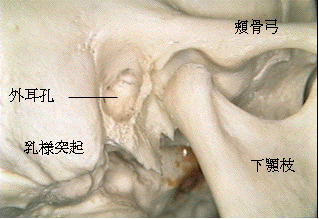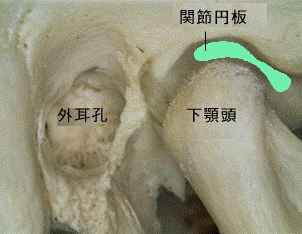Unconscious biting
MENU Waribashi(Split chopstick) Test T.M.D. Biofeedback Self-introduction
 Usually, there is a 0.5-2.5 mm space between your upper and
lower teeth. If the space does not exist, you will have
various troubles, including smarting, occlusion pain,
abnormal ablation, caries, fracture, wobble, gingival
swelling, masseter pain, jaw joint pain and noise, trismus,
headache, neck pain, shoulder stiffness, tinnitus, eye
smarting, and other systemic symptoms. We do not fully
understand occlusions, so there are many problems regarding
the causes and treatment of biting diseases.
Usually, there is a 0.5-2.5 mm space between your upper and
lower teeth. If the space does not exist, you will have
various troubles, including smarting, occlusion pain,
abnormal ablation, caries, fracture, wobble, gingival
swelling, masseter pain, jaw joint pain and noise, trismus,
headache, neck pain, shoulder stiffness, tinnitus, eye
smarting, and other systemic symptoms. We do not fully
understand occlusions, so there are many problems regarding
the causes and treatment of biting diseases.
It is natural to bite when you eat something, swallow
saliva, stand up, or carry something heavy. However, if you
bite unconsciously, you will be troubled because modest,
long and persistent biting will exert a strong load on your
teeth. Previous studies have reported that biting for
eating does not exert a large load on the oral system
because it is transient, but that unconscious biting is a
large load and will cause troubles. I agree with the
reports.
Most people do not realize not only the harm of
unconscious biting but also the fact that they bite
unconsciously, and that their jaws will worsen
asymptomatically. Biting during sleep is a kind of bruxism,
and the tooth noise may disturb others. Because of the
great biting strength, bruxism does enormous harm to the
oral and other systems. On the other hand, some people
think that bruxism and biting are essential for a living
body, and are the main roles of the oral system. I am
interested in and agree with this idea. Medical studies
have not clarified these oral problems, so no one can
completely treat bruxism now.
 First, the jaw tends to close when you look downward. So,
those who read many books and do detailed manual or computer
work need to beware. This is true for mothers with babies
because they often look downward to feed and care for their
babies. In addition, you tend to look downward when you are
in poor shape.
First, the jaw tends to close when you look downward. So,
those who read many books and do detailed manual or computer
work need to beware. This is true for mothers with babies
because they often look downward to feed and care for their
babies. In addition, you tend to look downward when you are
in poor shape.
Secondly, those who carry heavy objects in their work, or athletes of ball
games or wrestling tend to bite, which may sometimes injure their oral
system.
Thirdly, people in an overcrowded, busy country such as
Japan tend to suffer much stress and deal with it by
unconscious biting. We tend to bite when we need to adapt
to new surroundings. It is difficult for us to live a
stress-free life. The most typical case is those who are
sitting for a school or university entrance exams. Because
they look down for a long time to study and suffer much
stress, they often come to our hospital complaining of jaw
pain. However, without any treatment, most of them no
longer suffer it after the exams are over. We just explain
to them the daily care needed for a quick recovery.
If the above three issues are addressed, jaw related
diseases will be reduced significantly. Past experience
shows that 80% of patients improve so that they can live a
normal life only through daily care.
However, biting has become a habit, and correcting this
habit requires repetition. Prepare a system around you that
warns you not to bite. Although this may seem difficult, a
wristwatch, for example, will tell you not to bite without
fail if you use its alarm function. The alarm will just be
a chime to others, but will tell you not to bite. Of
course, there are many options. Anything that warns you not
to bite will do. You may not believe this, but try it and
you will realize its effectiveness.
The above is the material that we give to patients after
explaining about biting. However, I have something to add.
Patients do not understand fully only with this material.
They do not believe it and do not try the chopstick test
unless we explain it verbally because most of them have
never heard of the test and it takes a long time to
understand it. Patients with more serious symptoms, or
those with a longer history tend to understand it quicker
because they share the same experiences as the materials.
It is also good to recommend patients to be upright and get
suitable exercise, such as walking, yoga, and tai chi quan.
The combination of slow breathing and exercise is especially
effective because it also contributes to peace of mind. We
explain these forms of daily care to all patients because no
treatment works without them. In addition, those without
jaw symptoms but with frequent tooth or gum troubles are
likely to suffer biting problems.
mak@fineteeth.com
 First, the jaw tends to close when you look downward. So,
those who read many books and do detailed manual or computer
work need to beware. This is true for mothers with babies
because they often look downward to feed and care for their
babies. In addition, you tend to look downward when you are
in poor shape.
First, the jaw tends to close when you look downward. So,
those who read many books and do detailed manual or computer
work need to beware. This is true for mothers with babies
because they often look downward to feed and care for their
babies. In addition, you tend to look downward when you are
in poor shape.
 Usually, there is a 0.5-2.5 mm space between your upper and
lower teeth. If the space does not exist, you will have
various troubles, including smarting, occlusion pain,
abnormal ablation, caries, fracture, wobble, gingival
swelling, masseter pain, jaw joint pain and noise, trismus,
headache, neck pain, shoulder stiffness, tinnitus, eye
smarting, and other systemic symptoms. We do not fully
understand occlusions, so there are many problems regarding
the causes and treatment of biting diseases.
Usually, there is a 0.5-2.5 mm space between your upper and
lower teeth. If the space does not exist, you will have
various troubles, including smarting, occlusion pain,
abnormal ablation, caries, fracture, wobble, gingival
swelling, masseter pain, jaw joint pain and noise, trismus,
headache, neck pain, shoulder stiffness, tinnitus, eye
smarting, and other systemic symptoms. We do not fully
understand occlusions, so there are many problems regarding
the causes and treatment of biting diseases.